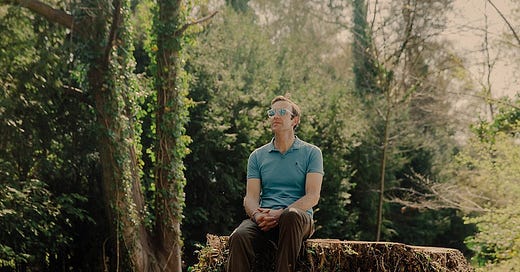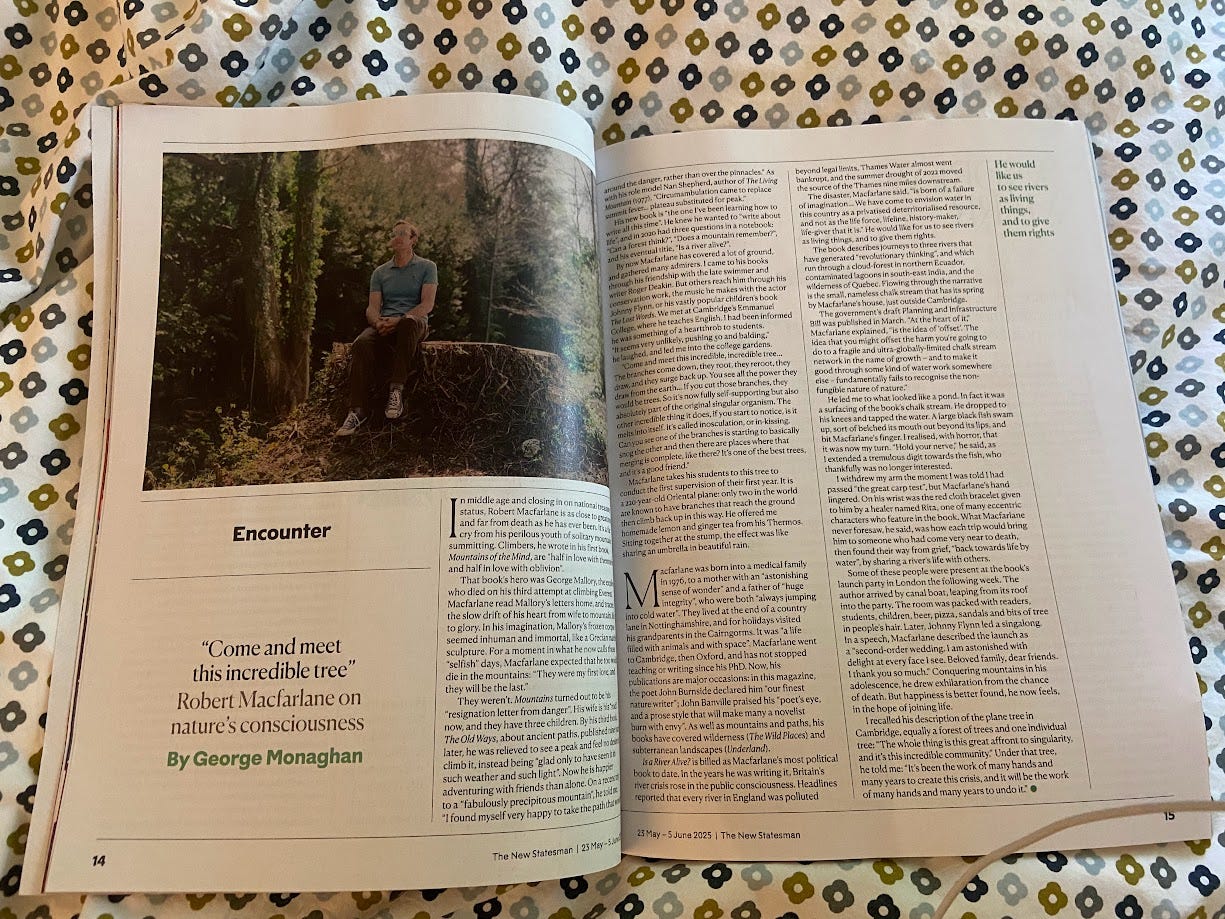In middle age and closing in on national treasure status, Robert Macfarlane is as close to greatness and far from death as he has ever been. It’s a far cry from his perilous youth of solitary mountain summitting. Climbers, he wrote in his first book, Mountains of the Mind, are “half in love with themselves, and half in love with oblivion”.
That book’s hero was George Mallory, the explorer who died on his third attempt at climbing Everest. Macfarlane read Mallory’s letters home, and traced the slow drift of his heart from wife to mountain, life to glory. In his imagination, Mallory’s frozen corpse seemed inhuman and immortal, like a Grecian marble sculpture. For a moment in what he now calls those “selfish” days, Macfarlane expected that he too would die in the mountains: “They were my first love, and they will be the last.”
They weren’t. Mountains turned out to be his “resignation letter from danger”. His wife is his “rock” now, and they have three children. By his third book, The Old Ways, about ancient paths, published nine years later, he was relieved to see a peak and feel no desire to climb it, instead being “glad only to have seen it in such weather and such light”. Now he is happier adventuring with friends than alone. On a recent trip to a “fabulously precipitous mountain”, he told me, “I found myself very happy to take the path that worked around the danger, rather than over the pinnacles.” As with his role model Nan Shepherd, author of The Living Mountain (1977), “Circumambulation came to replace summit fever… plateau substituted for peak.”
His new book is “the one I’ve been learning how to write all this time”. He knew he wanted to “write about life”, and in 2020 had three questions in a notebook: “Can a forest think?”, “Does a mountain remember?”, and his eventual title, “Is a river alive?”.
By now Macfarlane has covered a lot of ground, and gathered many admirers. I came to his books through his friendship with the late swimmer and writer Roger Deakin. But others reach him through his conservation work, the music he makes with the actor Johnny Flynn, or his vastly popular children’s book The Lost Words. We met at Cambridge’s Emmanuel College, where he teaches English. I had been informed he was something of a heartthrob to students. “It seems very unlikely, pushing 50 and balding,” he laughed, and led me into the college gardens.
“Come and meet this incredible, incredible tree… The branches come down, they root, they reroot, they draw, and they surge back up. You see all the power they draw from the earth… If you cut those branches, they would be trees. So it’s now fully self-supporting but also absolutely part of the original singular organism. The other incredible thing it does, if you start to notice, is it melts into itself. It’s called inosculation, or in-kissing. Can you see one of the branches is starting to basically snog the other and then there are places where that merging is complete, like there? It’s one of the best trees, and it’s a good friend.”
Macfarlane takes his students to this tree to conduct the first supervision of their first year. It is a 220-year-old Oriental plane: only two in the world are known to have branches that reach the ground then climb back up in this way. He offered me homemade lemon and ginger tea from his Thermos. Sitting together at the stump, the effect was like sharing an umbrella in beautiful rain.
Macfarlane was born into a medical family in 1976, to a mother with an “astonishing sense of wonder” and a father of “huge integrity”, who were both “always jumping into cold water”. They lived at the end of a country lane in Nottinghamshire, and for holidays visited his grandparents in the Cairngorms. It was “a life filled with animals and with space”. Macfarlane went to Cambridge, then Oxford, and has not stopped teaching or writing since his PhD. Now, his publications are major occasions…
Sorry to abrupt. I loved doing this interview and it ran on page 14 of the Gordon Brown special issue which is now out. Please click through and read.
I had a less fun encounter this week, with Nick Clegg. It was cool to go in the morning and turn the piece around for the early afternoon, but sadly Clegg was quite mean to me. That’s here.
Great to meet some of you this week. Hope you are all enjoying the long weekend.
GM






